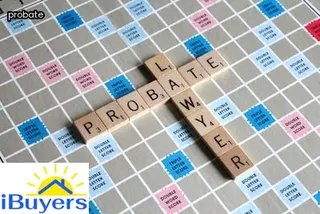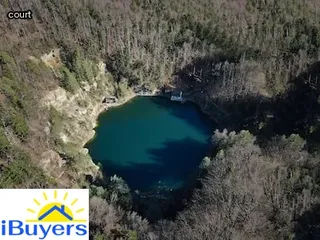The role of an executor in Wisconsin is to ensure that the wishes of a deceased estate owner are carried out. This includes fulfilling the legal requirements associated with probate and distributing the assets to the rightful beneficiaries according to the will.
An executor must be appointed by a probate court and is responsible for collecting all assets, paying any debts or taxes, filing paperwork, and distributing assets. They may also have to manage any real estate owned by the decedent if it was not sold prior to death.
The executor must also provide an inventory of all assets and accounts held by the decedent and take responsibility for tracking down any creditors or heirs who claim an interest in those assets. It is important that an executor understands their duties and works closely with legal counsel throughout the process to ensure that they fulfill their obligations correctly.

Filing a petition for probate in Wisconsin is a necessary step for real estate owners who need to navigate the probate process. Before beginning, it is important to become familiar with the laws and regulations related to probate in Wisconsin.
The first step is to obtain the necessary forms from either the County Clerk’s office or from the Wisconsin Department of Justice website. After filling out the forms, they must be filed with the Circuit Court in the county where the decedent lived at death.
Once submitted, a hearing will take place in which all interested parties are notified of the petition and have an opportunity to provide comments or objections. During this time, additional paperwork may be required before probate can be granted.
The entire process may take several months to complete, so it is important that all documents are filled out correctly and submitted on time. Once approved, real estate owners will then be able to proceed with transferring ownership of any property owned by the decedent.
Navigating probate in Wisconsin can be a difficult process, especially for real estate owners. Going through the probate process often involves several common challenges, such as determining who has the legal authority to administer the estate, locating and notifying all of the beneficiaries and creditors, submitting a petition for probate to the court and managing any assets that are part of the estate.
In addition, it may be necessary to file an inventory of assets with the court as well as pay any outstanding debts that are owed by the deceased person. The executor or administrator of the estate must also provide notice to interested parties regarding their rights under applicable laws.
Finally, if there is a will involved in the probate process, then it must be admitted to probate in order for its terms to take effect. All these steps require patience and legal knowledge which can make navigating probate in Wisconsin quite challenging for real estate owners.

When navigating probate in Wisconsin for real estate owners, understanding the different types of wills is essential. In the state of Wisconsin, there are six main types of wills that can be used for estate planning: a simple will, a joint will, a holographic will, an oral will, a testamentary trust will and a living trust will.
A simple will is the most basic form of will and it allows individuals to designate how their property should be distributed after death. Joint wills are similar to simple wills but they are written by two people who agree to share their assets upon death.
Holographic wills are handwritten documents that do not need to be witnessed or notarized in order to be valid. Oral wills are verbal communications from the individual about how their estate should be handled after death; however, these can only be used if all other forms of documentation have been destroyed or cannot be located.
Testamentary trust wills allow individuals to establish trusts within their last will and testament; this type of trust goes into effect after the individual’s death and offers additional protection for beneficiaries. Lastly, living trust wills allow individuals to transfer ownership of their assets while they are still alive without going through probate court; this type of trust also offers asset protection benefits to both the grantor and beneficiaries upon death.
It is important for real estate owners in Wisconsin to understand each type of will available so they can make the best decision possible when it comes time to plan their estates.
Estate administration in Wisconsin requires the appointed Administrator to handle a wide range of duties and responsibilities. First, they must determine if Probate is necessary for the estate by filing a Petition for Probate with the probate court.
Next, the Administrator must notify all interested parties including heirs and creditors of the proceedings. The Administrator will also be responsible for collecting and inventorying assets, paying bills and taxes, maintaining records, filing tax returns, obtaining appraisals on real estate owned by the estate, and distributing remaining funds to heirs.
In addition to these tasks, they are required to settle any disputes that may arise between heirs or creditors. Finally, they must complete a final accounting of all assets and liabilities before closing out the estate.
Navigating Probate in Wisconsin can be difficult and it is important to have an Estate Administrator who understands their duties and responsibilities in order to ensure that everything runs smoothly throughout the process.

Navigating probate in Wisconsin for real estate owners involves a few key steps. To begin, the executor of an estate must determine if the decedent’s assets require probate proceedings.
If they do, then they will need to file a Petition for Probate with the local court and obtain Letters of Administration. This document grants authority to the executor to administer the estate and manage its resources.
From there, the executor must collect all of the decedent’s assets, pay off any outstanding debts or taxes owed on them, and distribute what remains according to state law and as outlined in any relevant documents such as a will or trust. The process is subject to court supervision and requires providing proof that each step has been taken correctly by filing certain forms with the court.
Once all requirements have been met, including submitting an Inventory of Assets form which itemizes all items owned by the deceased at death, the court may issue a Final Order approving distribution of assets to beneficiaries. It is important for real estate owners in Wisconsin to understand how these steps are required when administering an estate.
Navigating probate in Wisconsin for real estate owners can be a difficult, time-consuming process. Probate is the legal process of administering the assets of a deceased person who owned property in Wisconsin.
When a real estate owner passes away, their assets must go through this complex series of court proceedings to be properly distributed according to their will or state law if there is no will. Fortunately, with careful planning, it is possible to avoid probate and its associated costs and delays.
One way to do this is by creating a living trust, which allows you to transfer ownership of your estate during your lifetime so that it does not have to go through probate after your death. Additionally, there are other options available such as “payable on death” designations and joint tenancy with rights of survivorship that can help reduce the amount of time and money spent on navigating probate in Wisconsin for real estate owners.
The benefits of avoiding probate include saving time, money, and stress while ensuring that your assets are distributed according to your wishes when you pass away.

Navigating probate in Wisconsin for real estate owners requires knowledge of the state's regulations and rules surrounding estate distribution. In general, the law stipulates that when a resident passes away leaving real estate property in their name, it must go through the probate process, which is overseen by the court.
This process includes determining who will be responsible for settling any debts of the decedent and distributing assets to designated heirs or beneficiaries. The Wisconsin statute also outlines how personal property, such as cash and investments, should be divided among those who are listed on the deceased's will.
Furthermore, it is important to note that if there is no will or other legal document defining how assets should be distributed, then state laws dictate how they are dispersed. Therefore, real estate owners must be aware of these rules and regulations before filing an estate with the court in order to avoid potential complications down the road.
The evaluation of real property is an important step during the probate process in Wisconsin. It's important to understand your rights and obligations as a real estate owner when it comes to navigating probate in Wisconsin.
Knowing the laws and rules of the probate process can help you make informed decisions about whether or not to keep or sell the property. The probate court will assign an appraiser to determine the value of the property, and this value is used for tax purposes and for any debts owed by the deceased.
When it comes to evaluating real property, experts recommend researching comparable properties in the area so you have an idea of what the fair market value should be. Additionally, you'll want to assess any liens or mortgages that may be attached to the property and understand how they will affect your ownership rights.
Finally, review all paperwork carefully with your attorney before making any decisions regarding real estate during probate in Wisconsin.

Once probate has been completed, there are several procedures for closing out an estate. This can be a complicated process, but with the right guidance, it can be navigated successfully.
First and foremost, all debts must be paid out of the estate's funds before any other action is taken. It is important to make sure that all creditors have been properly notified and that they have received payment in full.
In Wisconsin, real estate owners must also obtain clearance from the County Register of Deeds office before transferring any titles or deeds. Another step to take is to file final income tax returns for both the deceased individual and the estate itself.
Finally, it may also be necessary to file paperwork with the court to officially close out probate proceedings. Following these steps will help ensure that all matters related to the estate are handled promptly and correctly.
Navigating probate in Wisconsin for real estate owners can be a complex and lengthy process. To reduce the time frame for completing the probate process, estate owners should take certain steps.
First, they should gather all relevant documents related to the deceased's assets and liabilities. Next, they should identify who will become the personal representative of the estate and determine what type of probate administration is needed.
Additionally, they should make sure they are familiar with state laws regarding inheritance transfers and taxes on inheritances. Furthermore, it is essential that all paperwork is completed properly and filed in a timely manner to avoid unnecessary delays.
Finally, estate owners should communicate regularly with their attorney to ensure that everything is progressing as planned. Taking these steps can help Wisconsin real estate owners reduce their probate timeline and get through this difficult process more quickly.

When navigating probate in Wisconsin for real estate owners, the most important thing to consider is fairness and accuracy. To ensure this, it's best practice to be aware of all relevant deadlines and to keep detailed records of all transactions.
This includes any changes in ownership, filing fees, taxes due, and other paperwork that must be completed accurately during probate administration. It's also advisable to consult with an attorney who specializes in real estate law in Wisconsin before beginning the process.
Additionally, it can be helpful to use a probate calculator or spreadsheet program to help track all necessary documents, costs, and timelines associated with the probate process. Finally, staying organized and keeping copies of all forms filed or sent out can help ensure accuracy and prevent potential problems down the line.
Navigating probate in Wisconsin can be a complex process, especially for real estate owners. When it comes to filing a claim on an estate, the beneficiary must wait until the estate has been presented to the court and a judge has determined that the will is valid.
The court oversees all aspects of the probate process and ultimately determines who has legal rights to the property. It's important for beneficiaries to be aware of their rights and any deadlines that may be applicable when filing a claim on an estate.
Beneficiaries should also consider speaking with an attorney who specializes in probate law in Wisconsin as they can provide guidance throughout this often-complex process. In some cases, a claim may need to be filed within a certain period of time in order to have any chance at receiving any benefits or assets from an estate.
Failing to meet these deadlines could lead to losing out on any potential inheritance. Being informed of all applicable laws and regulations is essential when it comes to navigating probate in Wisconsin for real estate owners as it can help make sure that claims are properly filed and all rights are protected.

If you own real estate in Wisconsin and need to navigate probate, it is important to understand how to contest a will or revoke a power of attorney. In Wisconsin, contesting a will requires filing a formal petition with the court within four months of when the decedent's will was filed for probate.
The petition must include reasons why you are challenging the validity of the will such as fraud, undue influence, lack of mental capacity, or failure to follow statutory requirements. If successful, the court may invalidate all or part of the will.
Revocation of a power of attorney requires filing paperwork with the court along with an affidavit from yourself or another witness attesting to your capacity and intent to revoke. Once accepted by the court, notice must be given to all interested parties regarding the revocation.
Both processes can be complex and require legal guidance for accuracy and compliance so it is important to consult experienced attorneys who specialize in wills or trusts law when navigating probate in Wisconsin.
Inheriting real estate in Wisconsin can be a complicated process, and it is important to understand the rules of inheritance under state law. In Wisconsin, probate is required for any property owned by the deceased at the time of death.
The probate process helps to ensure that all heirs are granted their rightful inheritance. Under Wisconsin law, surviving spouses are generally entitled to a set percentage of the estate, while other heirs may receive either a percentage or a specific item from the estate.
Additionally, if no will exists, Wisconsin follows intestacy laws which dictate how the property is distributed among heirs. During probate, creditors must also be paid off using estate funds before any assets can be transferred or distributed to heirs.
It is important for real estate owners in Wisconsin to understand their rights under state law when it comes to inheritance and probate.

An executor is tasked with the responsibility of distributing the deceased's assets to creditors and beneficiaries. However, an executor can refuse to pay certain creditors under certain circumstances in Wisconsin.
Generally speaking, if a claim is made after the two-year deadline has passed or if the claim is not presented in writing according to state law, then the executor can deny it. Additionally, if a creditor fails to provide sufficient evidence or documentation of the debt owed, then an executor can also refuse payment.
To reject a claim for payment, it must be done in writing stating that the creditor is not entitled to receive any money from the estate. It should also include citations from relevant state statutes.
An executor should be aware that rejecting a claim carries some risk as it is possible for a creditor to take legal action against them in response.
If the real estate owner in Wisconsin passed away without a will, probate is still necessary to transfer ownership of the property. This is known as intestacy.
Generally speaking, the deceased's assets are distributed among their closest living family members according to Wisconsin law. In particular, if there is a surviving spouse, they are entitled to the entirety of the decedent's real estate.
However, if there is no surviving spouse or children, then other relatives such as parents or siblings may be eligible for an inheritance. The court will appoint an administrator to oversee the process and help divide up the assets among any surviving relatives deemed eligible by law.
It is important to note that while this process may seem straightforward, it can take some time and involve additional paperwork and other requirements that must be met in order for a successful transition of ownership.

Navigating probate in Wisconsin for real estate owners can be a difficult and lengthy process, especially when it comes to settling disputes. Mediation and arbitration are two important tools that can be used to come to an agreement quickly and efficiently.
Mediation is a process in which a neutral third party works with both sides to come up with a mutually acceptable solution that all parties must sign off on. Arbitration is similar, however the third party acts as the decision-maker to resolve the dispute.
In either case, it’s important to ensure that all parties understand their rights and responsibilities before proceeding. An attorney experienced in Wisconsin probate law can be invaluable in helping you understand your options so you can find the best resolution for your situation.
The role of an executor in Wisconsin is to ensure the deceased's property is distributed according to the wishes of their last will and testament. In some cases, an executor may be required to post a bond with the probate court in order to guarantee that all debts, taxes, and other liabilities associated with the estate are paid and the remaining assets are properly distributed.
The amount of the bond required for an executor in Wisconsin depends on several factors, such as whether or not the deceased had a valid will, any debts or liabilities associated with the estate, and if there are disputes among heirs regarding their inheritance rights. It is important to note that while executing a bond is not mandatory in all cases, it may be necessary when handling large estates or when there are potential conflicts among heirs.
In addition to posting a bond with the probate court, an executor must also adhere to all other state laws and regulations governing probate proceedings in Wisconsin.
Yes, it is possible to sell a house in probate in Wisconsin. Probate is the legal process of transferring ownership of assets from a deceased individual to their heirs or beneficiaries.
In Wisconsin, the probate process can be complex and time-consuming, but with the help of an experienced attorney, navigating probate is much easier. The attorney will assist with all aspects of the probate process such as filing documents with the court, locating creditors and paying debts owed by the estate, and ensuring that all necessary steps are taken to transfer title to the property.
Once all documents have been filed and approved by the court, the house can be sold through a real estate agent or put up for sale on the open market. It’s important to be aware that selling a house in probate may take longer than usual due to having to go through court proceedings before title can be transferred.
Additionally, an executor or administrator of an estate must get court approval for any sale made during probate. With proper guidance from an attorney and patience throughout this process, you can successfully sell a house in probate in Wisconsin.

In Wisconsin, probate can be an intimidating and time-consuming process for real estate owners. Fortunately, there are a few ways to avoid the probate of an estate in this state.
One option is to transfer ownership to a trust, which allows the grantor to maintain control while avoiding probate. Additionally, transferring property through joint tenancy with right of survivorship or paying-on-death designations on bank accounts and other assets can also help bypass the probate system in Wisconsin.
Finally, Wisconsin law allows for small estates with less than $50,000 in total value to pass without going through the probate court system if certain criteria are met. By taking these steps prior to death, real estate owners can ensure that their heirs will not have to navigate the lengthy and costly process of probate in Wisconsin.
Navigating probate in Wisconsin for real estate owners can be a complicated process, especially if you don't have an attorney. The laws in the state of Wisconsin require that the estate of the deceased is settled according to certain legal procedures.
Without the help and guidance of an experienced attorney, it can be difficult to ensure that everything is being handled correctly and efficiently. An attorney can help with a variety of tasks related to settling an estate, such as filing all necessary paperwork and obtaining any required permits or licenses.
They can also provide advice on how best to distribute assets among heirs, or handle any disagreements or disputes between them. Having an experienced attorney by your side while navigating probate in Wisconsin can make the process much smoother and less stressful for everyone involved.
In Wisconsin, the executor of a deceased person's estate must settle the estate within nine months of being appointed by the court. This is according to Section 853.
08 (2) of the Wisconsin Probate Code. The process of settling an estate in Wisconsin involves identifying and collecting assets, paying debts, filing relevant tax returns, and distributing any remaining assets to beneficiaries or heirs.
It is important for real estate owners in Wisconsin to understand how long they have to navigate probate in order to properly manage their estate and ensure that their wishes are fulfilled upon death.
A: When one joint tenant dies, the surviving joint tenant will typically retain full ownership of the property, unless the deceased had specified in a will that their interest would be transferred to someone else. In order to ensure that all Probate Laws are followed, it is recommended that a lawyer specializing in real estate law is consulted. Custody of the property can also be contested by other relatives or parties with potential interest in the property through probate court proceedings.
A: To determine if Estate Taxes or Federal Estate Tax is applicable in Wisconsin, information regarding the value of the deceased person's estate and any applicable deductions should be gathered.

A: When a married person passes away in Wisconsin, the surviving spouse will typically take ownership of the property without having to go through the probate process. The surviving spouse will be responsible for any expenses related to the property, including taxes and other costs.
A: In Milwaukee, Wisconsin, a Trustee has control and authority to manage the estate's assets and liabilities until the estate is legally closed and all debts and taxes are paid. This includes filing any required documents with the court, collecting assets from creditors or other estates, paying taxes such as Wisconsin Estate Tax, and distributing assets to beneficiaries according to the will or applicable state laws.
A: The process for navigating probate in Wisconsin for real estate owners depends on the type of ownership, such as sole or joint tenancy, as well as the individual's wishes. The executor of the estate will need to file a Petition For Formal Probate with the Wisconsin circuit court and provide information regarding assets and liabilities. This will determine if Estate Taxes or Federal Estate Tax are applicable. The trustee of the estate is then responsible for administering its distribution according to state laws and individual wishes.

A: Navigating Probate in Wisconsin for real estate owners typically involves filing a probate estate with the courts, appointing an executor to oversee the estate, gathering and appraising all assets, paying any debts or taxes due, and then distributing remaining assets according to the will or intestacy laws.
A: The complexity of obtaining death certificates in Wisconsin for probate and real estate purposes depends on the county. In some counties, it can be done online while in others, a court order must be obtained. It is important to check with the local county register of deeds office to determine what documents are required.